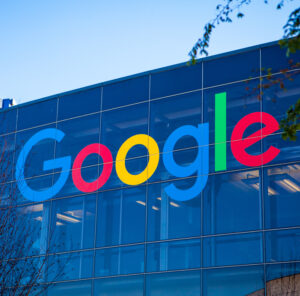Sometimes it feels like you have one of two options in ad tech: You’re a radical supporter of the open internet, whatever that means, or you’re in the pocket of Big Tech, you love walled gardens and hate anything that’s “open.”
But what if we could agree on more nuanced terminology?
The existing jargon we tend to lean on in ad tech is outdated and neither fit for purpose nor supportive of healthy discourse. It gets even more confusing when a high-profile person like Jeff Green, CEO of The Trade Desk, reiterates his commitment to the “open internet,” while at the same time operating Walmart’s demand-side platform, Walmart Connect, which could easily be considered a walled garden.
Let’s face it: The “open internet” includes a lot of good things, but also a lot of crap. And it’s a disservice to responsible media owners and content creators to bundle them in with nefarious operators that pirate content and operate solely to siphon legitimate ad dollars away through arbitrage.
At the same time, we cannot continue to refer to “walled gardens” as something inherently bad or monopolistic. The fact that we have significant antitrust issues tied to several walled gardens does not mean that the walled garden model is inherently defective.
Look at advanced TV and retail media. There are many scaled players in both spaces that opt for a “walled garden-ish” model in order to prevent data leakage and inventory abuse, which is often the right decision.
So let’s rally behind an umbrella term that encompasses what’s worth fighting for, and I have a proposal: Let’s call it the “genuine web” – or maybe even the somewhat snazzier GenWeb.
In my view, the GenWeb includes any digital media owner, platform or other connected operator with “ad real estate” that conducts itself responsibly. Some examples of what I would consider fundamental criteria for the genuine web are:
- Real audiences that engage organically with no forced viewing or arbitrage tactics
- Effective advertising formats and attention results that drive incremental growth
- Strict compliance with laws and regulations and proactive ethical conduct
- Clear information for the end user about their rights and how their data is being used
- Measurement and reduction of ad-tech-related CO2e emissions where possible
- Transparent declaration of ownership and end-to-end accountability across the ecosystem
- Original and officially licensed content only, as in no pirated or plagiarized material
- Free of harmful disinformation, hate speech and otherwise dangerous content
- Safe for children and other vulnerable groups
- You get the idea
Ad tech is fantastic in its ability to allow businesses to deliver value to users “for free.” It can support equal access to quality journalism, for example, which is critical for a functioning democracy.
The promise of ad tech was and is to create an efficient infrastructure that allows smaller operators to earn an advertising income. This remains a very valid ambition. Ad tech can also help create and maintain a fairer, more competitive playing field that’s supportive of entrepreneurialism and innovation.
However, if we are not careful, the “open internet” as we know it (or, rather, such as it is) will cease to be able to benefit from ad tech as a result of the actions of parties that are opportunistic at best and downright malicious at worst.
To say that the ad tech industry has existential reputation issues is an understatement.
So, let’s separate the wheat from the chaff. We do what we do so as to preserve and grow the genuine web. This includes many different types of ad-supported companies, with advertising opportunities accessible through a myriad of different ad-tech-enabled buying routes (both “walled” and more “open”).
Whether we’re talking about display advertising, in-app, online video, advanced TV, retail media, DOOH or even (forgive me) the metaverse – if it conducts itself genuinely, it’s worth fighting for.
But, for the love of god, let’s move on from knowingly including the chaff in discussions about the future of ad tech by using the term “open internet” as a blanket term.
Note: I couldn’t be less precious about the actual terminology we end up using. Genuine web or GenWeb is simply a first stab at something to prompt discussion. I hope that added clarity and nuance allows us to reset our collective aspiration of what ad tech can – and should – become.
All feedback is very much welcomed. Please share your views! And for more on this topic, you can listen to episode 295 of the AdExchanger Talks podcast: Fighting FOFO In The Programmatic Supply Chain.
“Data-Driven Thinking” is written by members of the media community and contains fresh ideas on the digital revolution in media.
Follow Ruben Schreurs (@RubSchreurs) and AdExchanger (@adexchanger) on Twitter.
For more articles featuring Ruben Schreurs, click here.















